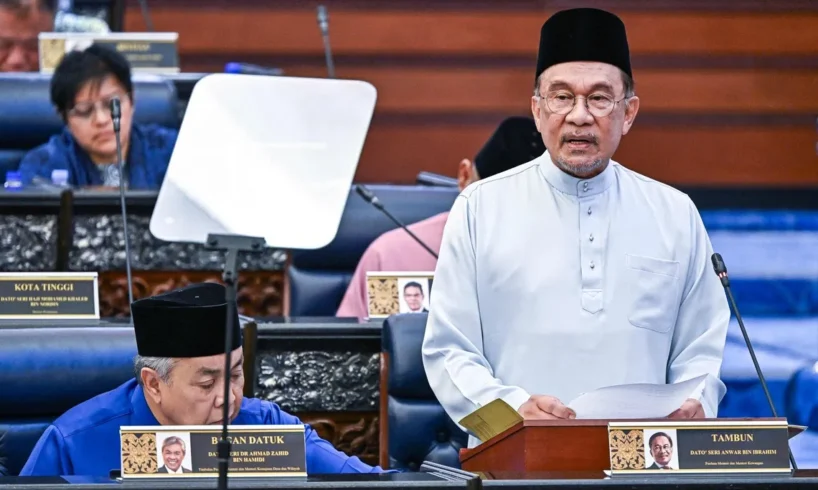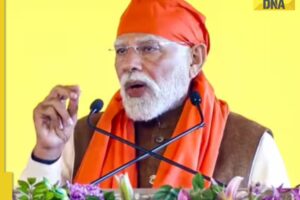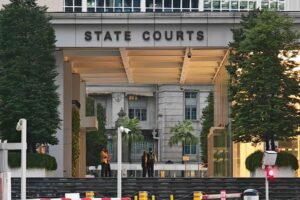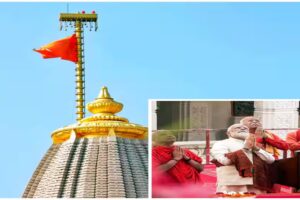
KUALA LUMPUR – Announced just days after the Sabah state assembly was dissolved, Malaysia’s Budget 2026 signals a renewed focus on East Malaysia, with major spending on infrastructure, electricity and water in a region vital to the country’s political and economic balance.
Analysts say the timing underscores Sabah’s weight as it
heads into a state election
, amid lingering public distrust over the long-delayed delivery of federal promises to the resource-rich but less developed eastern states.
Budget 2026
raises Sabah’s development funding to RM6.9 billion (S$2.1 billion) and Sarawak’s to RM6 billion. It also doubled both states’ annual special grants to RM600 million each from RM300 million previously.
For many Sabahans, though, promises of large allocations have become too familiar, with little to show for them.
Dr Arnold Puyok, political analyst at Universiti Malaysia Sarawak, said voters are looking for results, not figures.
“People here have heard promises of billions before, yet infrastructure problems remain. The main issues are implementation, weak governance and the inability of representatives to turn those billions into tangible results,” he said.
He said that while the higher grants are significant, they do not resolve Sabah’s long-running demand for a bigger share of federal revenue.
“It does not address the issue of the 40 per cent federal revenue that Sabah has been demanding. This is only a temporary and symbolic solution, rather than a long-term and structural one,” he told The Straits Times.
Opposition MP Syahir Sulaiman of Parti Islam SeMalaysia in Bachok, Kelantan, described the allocations as pre-election goodies, arguing that federal funds should not be used as political leverage.
“Sabah and Sarawak deserve more support, but development allocations should not be tied to political timing or convenience,” he said.
According to Tindak Malaysia, a non-governmental agency promoting electoral reform and democracy, as at 2025, there are more than 1.7 million eligible voters in Sabah, Malaysia’s second-biggest state by land size after Sarawak.
In the forthcoming election, which must be held within 60 days after
the Sabah state assembly was dissolved on Oct 6
, Sabahans will be electing representatives to fill up the 73 state seats.
Sabah’s political loyalty is key for Prime Minister Anwar Ibrahim.
At Malaysia’s 2022 General Election, no coalition won a majority. Support from East Malaysian blocs such as Sarawak’s Gabungan Parti Sarawak (GPS) and Sabah’s Gabungan Rakyat Sabah (GRS) helped Datuk Seri Anwar form a unity government. GPS contributed 23 seats and GRS six, according to official results.
Sabah’s politics have remained fluid since. Chief Minister Hajiji Noor, who led the GRS bloc and was originally under opposition party Parti Pribumi Bersatu Malaysia, later quit the party but remained GRS leader and kept his post with GRS support.
In the coming election, several parties aligned with Mr Anwar’s government are expected to compete against one another, including former GRS partners Parti Solidariti Tanah Airku and Sabah Progressive Party. This overlap of allies-turned-rivals highlights Sabah’s unpredictable, highly personality-driven politics, where national coalitions rarely hold at the state level.
“Sabah has long been an arena to shape federal power,” said Dr Bridget Welsh, honorary research associate with the University of Nottingham Asia Research Institute Malaysia.
“Sabah politicians have a history of switching support, so keeping them onside requires meeting their demands.
“The funds are a good start but a drop in the bucket of what is needed… Money alone will not solve the problems because they involve governance reform,” she said.
The recent budget announcement also underscored the federal government’s continued role in basic infrastructure. It allocated RM1.2 billion to secure the electricity supply, a move that comes despite having devolved the supply regulation to Sabah last year; RM765 million for the Southern Link Transmission Project, and RM1 billion for water upgrades in Tawau, Kota Kinabalu, Penampang and Putatan. The Solar Madani programme, which has installed 4,000 solar street lights, will also be expanded to more rural areas.
Sabah’s Kota Kinabalu MP Chan Foong Hin, who is also Deputy Plantation and Commodities Minister, welcomed the allocations as long overdue. He said they showed Putrajaya’s commitment to narrowing Sabah’s infrastructure gap and fulfilling the Malaysia Agreement 1963, the accord that secured Sabah and Sarawak’s entry into the Malaysian federation with special rights and autonomy guarantees.
Transport and digital connectivity also featured prominently in Budget 2026. The budget funds ongoing work on the Pan-Borneo Highway, the 28km Kalabakan-Simanggaris road linking Malaysia and Indonesia, and the RM2 billion, 3,190km Salam undersea cable connecting Johor, Sarawak and Sabah.
Dr Tricia Yeoh, senior visiting fellow at the ISEAS – Yusof Ishak Institute, said the allocations reflect both political and long-term federal intent, coming amid growing sentiment in East Malaysia for greater fulfilment of the Malaysia Agreement 1963.
“These upgrades to connectivity and utility in Sabah are very welcome, but they have to come in concert with implementation and delivery,” she said.
Sarawak’s RM6 billion allocation, meanwhile, reflects its stronger political footing and more structured autonomy push.
“Sabah looks to Sarawak and follows in its footsteps in seeking greater autonomy,” Dr Yeoh said.
Dr Puyok said Sarawak’s growing influence also poses a challenge for the federal government.
“Anwar does not want Sarawak’s strong and unchallenged position to be replicated in Sabah. Stronger Borneo states do not bode well for the federal government,” he said.
Dr Yeoh said the effectiveness of the budget allocations to East Malaysia will depend on delivery.
“If federal and state agencies can work effectively, this budget could mark real progress towards fairer development,” she said.
Sign up for our weekly
Asian Insider Malaysia Edition
newsletter to make sense of the big stories in Malaysia.





